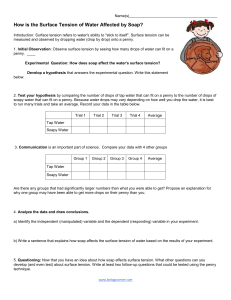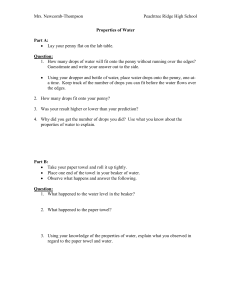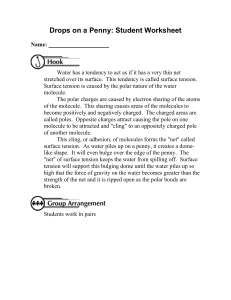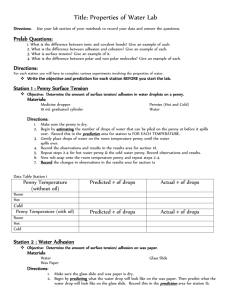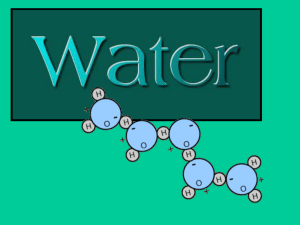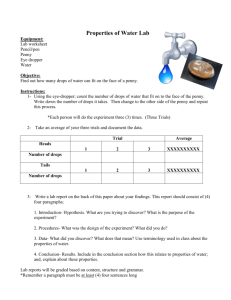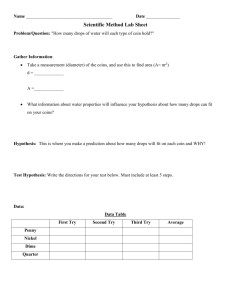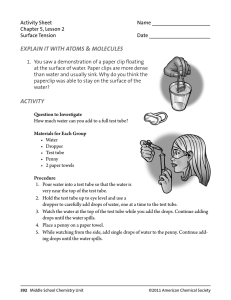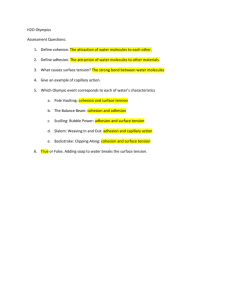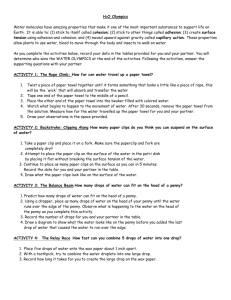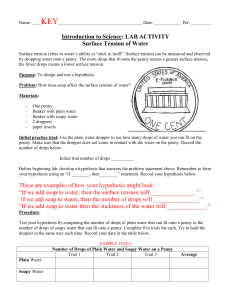Density of Ice vs. Water
advertisement
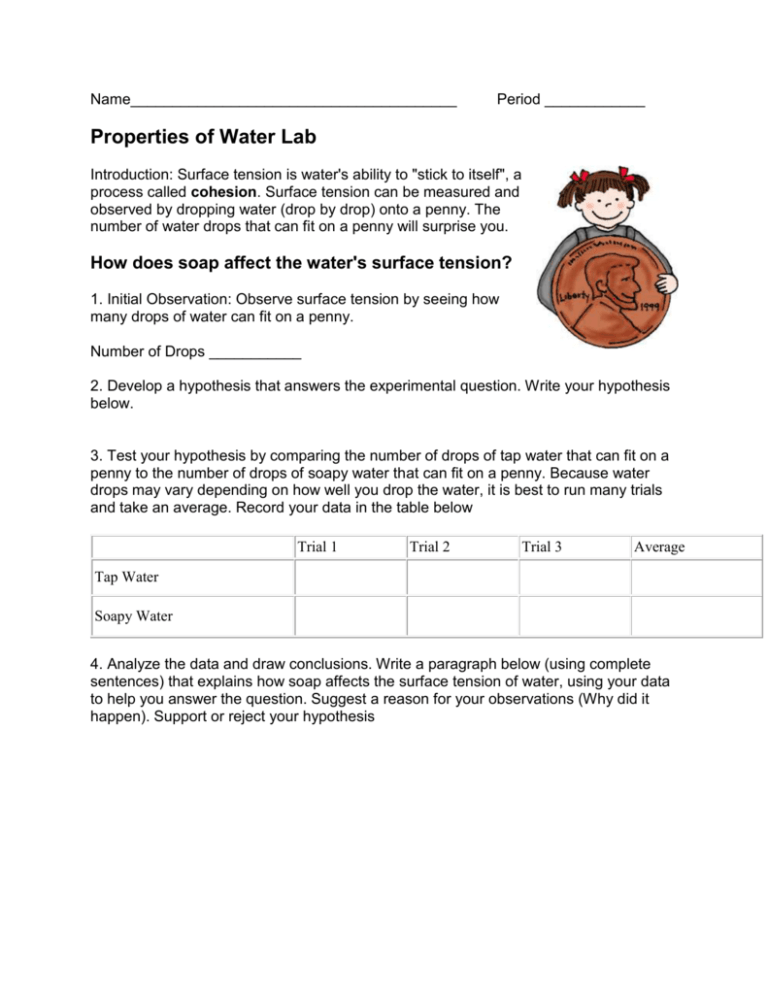
Name_______________________________________ Period ____________ Properties of Water Lab Introduction: Surface tension is water's ability to "stick to itself", a process called cohesion. Surface tension can be measured and observed by dropping water (drop by drop) onto a penny. The number of water drops that can fit on a penny will surprise you. How does soap affect the water's surface tension? 1. Initial Observation: Observe surface tension by seeing how many drops of water can fit on a penny. Number of Drops ___________ 2. Develop a hypothesis that answers the experimental question. Write your hypothesis below. 3. Test your hypothesis by comparing the number of drops of tap water that can fit on a penny to the number of drops of soapy water that can fit on a penny. Because water drops may vary depending on how well you drop the water, it is best to run many trials and take an average. Record your data in the table below Trial 1 Trial 2 Trial 3 Average Tap Water Soapy Water 4. Analyze the data and draw conclusions. Write a paragraph below (using complete sentences) that explains how soap affects the surface tension of water, using your data to help you answer the question. Suggest a reason for your observations (Why did it happen). Support or reject your hypothesis Post- Lab Analysis 5. Explain what surface tension is. 6. In this experiment, what was your control group? 7. Identify the independent variable in the experiment. 8. Identify the dependent variable in the experiment. Paper Towel Capillary Action A process similar to cohesion, adhesion, refers to water’s attraction to other substances. These two processes together result in the phenomenon of capillary action. 9. With your penny full of water, dip the corner of a paper towel into the water. Write your observations below. 10. Explain how both cohesion and adhesion are being shown with this demonstration. Density of Ice vs. Water Another fascinating property of water is the fact that the solid (ice) is less dense than the liquid. Use ice cubes, a graduated cylinder, and a triple-beam balance to find out how much more dense liquid water is than ice. Recall that density = mass/volume. 11. Density of water: ________________ Density of ice: ________________ 12. In terms of the molecules, why is ice less dense than water?
